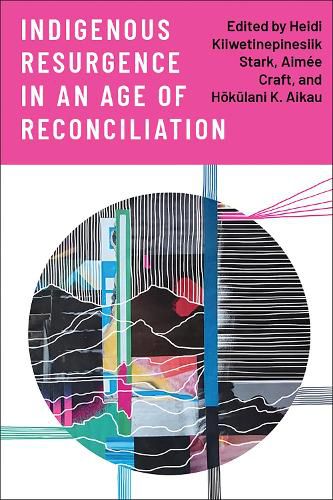Readings Newsletter
Become a Readings Member to make your shopping experience even easier.
Sign in or sign up for free!
You’re not far away from qualifying for FREE standard shipping within Australia
You’ve qualified for FREE standard shipping within Australia
The cart is loading…






What would Indigenous resurgence look like if the parameters were not set with a focus on the state, settlers, or an achievement of reconciliation? Indigenous Resurgence in an Age of Reconciliation explores the central concerns and challenges facing Indigenous nations in their resurgence efforts, while also mapping the gaps and limitations of both reconciliation and resurgence frameworks.
The essays in this collection centre the work of Indigenous communities, knowledge, and strategies for resurgence and, where appropriate, reconciliation. The book challenges narrow interpretations of indigeneity and resurgence, asking readers to take up a critical analysis of how settler colonial and heteronormative framings have infiltrated our own ways of relating to our selves, one another, and to place. The authors seek to (re)claim Indigenous relationships to the political and offer critical self-reflection to ensure Indigenous resurgence efforts do not reproduce the very conditions and contexts from which liberation is sought.
Illuminating the interconnectivity between and across life in all its forms, this important collection calls on readers to think expansively and critically about Indigenous resurgence in an age of reconciliation.
$9.00 standard shipping within Australia
FREE standard shipping within Australia for orders over $100.00
Express & International shipping calculated at checkout
What would Indigenous resurgence look like if the parameters were not set with a focus on the state, settlers, or an achievement of reconciliation? Indigenous Resurgence in an Age of Reconciliation explores the central concerns and challenges facing Indigenous nations in their resurgence efforts, while also mapping the gaps and limitations of both reconciliation and resurgence frameworks.
The essays in this collection centre the work of Indigenous communities, knowledge, and strategies for resurgence and, where appropriate, reconciliation. The book challenges narrow interpretations of indigeneity and resurgence, asking readers to take up a critical analysis of how settler colonial and heteronormative framings have infiltrated our own ways of relating to our selves, one another, and to place. The authors seek to (re)claim Indigenous relationships to the political and offer critical self-reflection to ensure Indigenous resurgence efforts do not reproduce the very conditions and contexts from which liberation is sought.
Illuminating the interconnectivity between and across life in all its forms, this important collection calls on readers to think expansively and critically about Indigenous resurgence in an age of reconciliation.